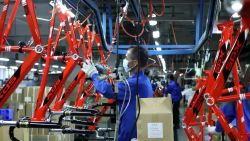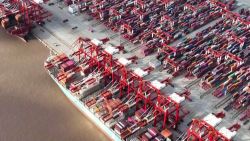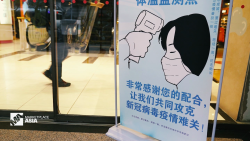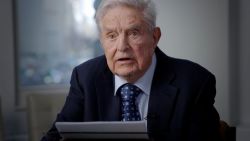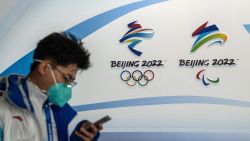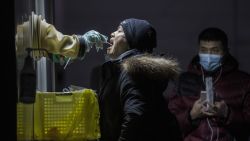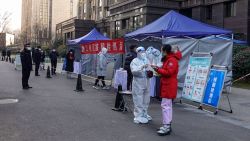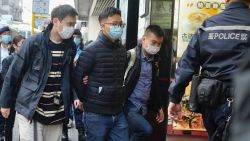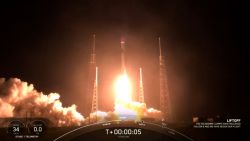Cathay Pacific on Monday warned its staff that those who “support or participate in illegal protests” in Hong Kong could be fired.
The city’s largest airline outlined its “zero tolerance” approach in a memo sent days after Chinese authorities took steps to prevent Cathay workers who participate in protests from flying to mainland China or passing through the country’s airspace. Cathay said that it would comply with that rule.
“It is important to remember that actions and words of our employees made outside of working hours can have a significant effect on the company,” CEO Rupert Hogg told employees. The airline shared a copy of the memo with CNN.
“We have a high profile in the community given the nature of our business and inevitably actions of our employees frequently attract attention and would be treated as that representing the company’s position,” Hogg added.
All flights departing Hong Kong were later canceled Monday because of massive protests at its international airport, according to a statement posted on Cathay’s website. Cathay cited a directive from the Hong Kong International Airport Authority.
China’s Civil Aviation Administration said Friday that it would ban Cathay employees who support or take part in “illegal demonstrations, protests and violent attacks, as well as those who have had radical behaviors” from working on flights in China’s airspace. The agency also said it will require Cathay to submit identification details about all relevant crews for approval prior to takeoff.
Hogg had told employees on Saturday that the company is legally required to comply with China’s aviation authority. He wrote that workers who partake in such actions will be “immediately suspended” from any flights or “air transportation” activity involving mainland China.
The chief executive also pointed out that China is key to the airline’s business. Cathay not only flies in and out of mainland China — it also has a “large number of routes” to Europe and the United States that pass through that airspace.
Cathay Pacific is based in Hong Kong, which though a part of China is governed under a separate legal framework granting the city certain political and legal freedoms not available on the mainland.
There have now been 10 consecutive weekends of protests in the financial hub, where demonstrators are calling for greater democracy, an independent investigation into alleged police brutality and the resignation of the city’s leader, Carrie Lam.
Clashes between protestors and police have in some cases involved tear gas and resulted in injuries.
“Our primary focus must remain on delivering a safe, comfortable customer experience for everyone who chooses to fly with us,” Hogg wrote in his memo on Saturday. “At the same time, we always try to create a safe, supportive environment for all Cathay Pacific Group employees. Though people may share different views, it is essential that we all respect each other, our customers and members of the public.”
The company also said that by Thursday it will provide a report to China’s Civil Aviation Administration on actions taken to improve flight safety and security, per the agency’s request.
On the same day that Cathay announced it would comply with China’s aviation authority, the airline also confirmed that it removed a pilot from duty last month who had been arrested during one of the protests.
“Cathay Pacific wishes to make it clear that we express no view whatsoever on the subject matter of any proceedings to which he may be subject,” the company said.
Cathay flies about 34 million passengers every year and serves nearly 200 cities around the world from its hub at Hong Kong’s international airport. But its business has suffered because of the city’s political crisis.
The airline was forced to cancel more than 150 flights last week amid a day of mass demonstrations and strikes. And the international airport was the site of a three-day sit in.
The company’s stock was down about 4.5% on Monday. It has lost more than 11% this month.
CNN’s Laura He and Sandi Sidhu contributed to this report.



